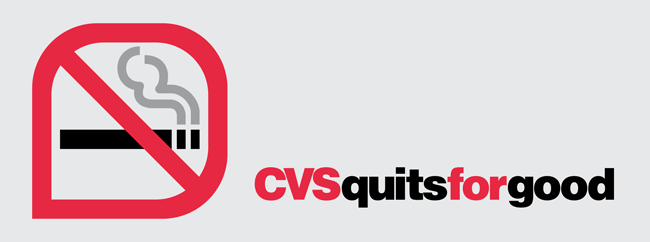CVS Quits Smoking for Good: For Healthier Patients or Profits?
 Some would call public relations the art of perception. Communication professionals are trained at crafting and refining messaging and devising appropriate strategies for information dissemination, including source, timing, vehicle, and if appropriate amplification.
Some would call public relations the art of perception. Communication professionals are trained at crafting and refining messaging and devising appropriate strategies for information dissemination, including source, timing, vehicle, and if appropriate amplification.
Last week, CVS Caremark announced that as of October 1, 2014, it will no longer sell cigarettes and tobacco-related products in the United States. The announcement, which was covered by just about every major network and publication, was positioned as part of CVS Caremark's effort to commit to being a health-care provider. The company executed a successful social media campaign around the #cvsquits hashtag and received many endorsements from the public, including from the White House, health-care think tanks, and many public officials (including Bill Gates).
To date, the story has been positioned mostly as a socially conscious business decision by CVS to commit to and support the health of its patients and customers. As communication professionals know, a company's investment in socially responsible business initiatives (i.e. CSR programs) generally is aligned with an eventual positive return on investment. It is with that in mind that a PR pro sees such an announcement and reads between the lines.
Let's examine the facts.
- It has been estimated that the decision will cost CVS Caremark about $2 billion in lost revenue, including an estimated $500 million that comes from other products that smokers will no longer purchase at retail locations in conjunction with cigarettes.
- Smoking in the United States continues to decline - 18% of Americans are smokers versus 42% in 1965.
- There has been increased regulation of the use and purchase of tobacco products.
- Higher taxes have been imposed on tobacco products, driving up the cost to consumers and lowering the already low margins for sellers.
- Convenience stores currently represent 86% of U.S. cigarette sales among mass merchants, according to the National Association of Convenience Stores.
- There is a national growing trend of pharmacies opening clinics and forging partnerships with insurers and hospitals in the wake of a shortage of primary care doctors and an increased number of patients enrolled in coverage following the passage of the Affordable Care Act.
It doesn't take much to connect these dots and see that the profit potential associated with the newly uncovered expansion opportunities for CVS Caremark surrounding the passage of the Affordable Care Act far outweighs the low margins of their current tobacco-related sales, which are likely to further decrease in accordance with both national trends and increased regulation. As such, it seems apparent that the company smartly capitalized on what is likely to be an inevitable move in the industry and seized the publicity advantage surrounding being the first mover amongst its competitors. Walgreen's and Rite Aid both addressed inquiries in response to the CVS announcement about their sale of tobacco-related products to which both companies stressed that they have and will continue to evaluate this area of their business.
CVS Caremark announced its earnings today. It will be interesting to hear analyst reactions during the Q&A and following the call. Let's see how the company communicates this financial-based decision, while staying on the "health-care provider" message. ![]()
